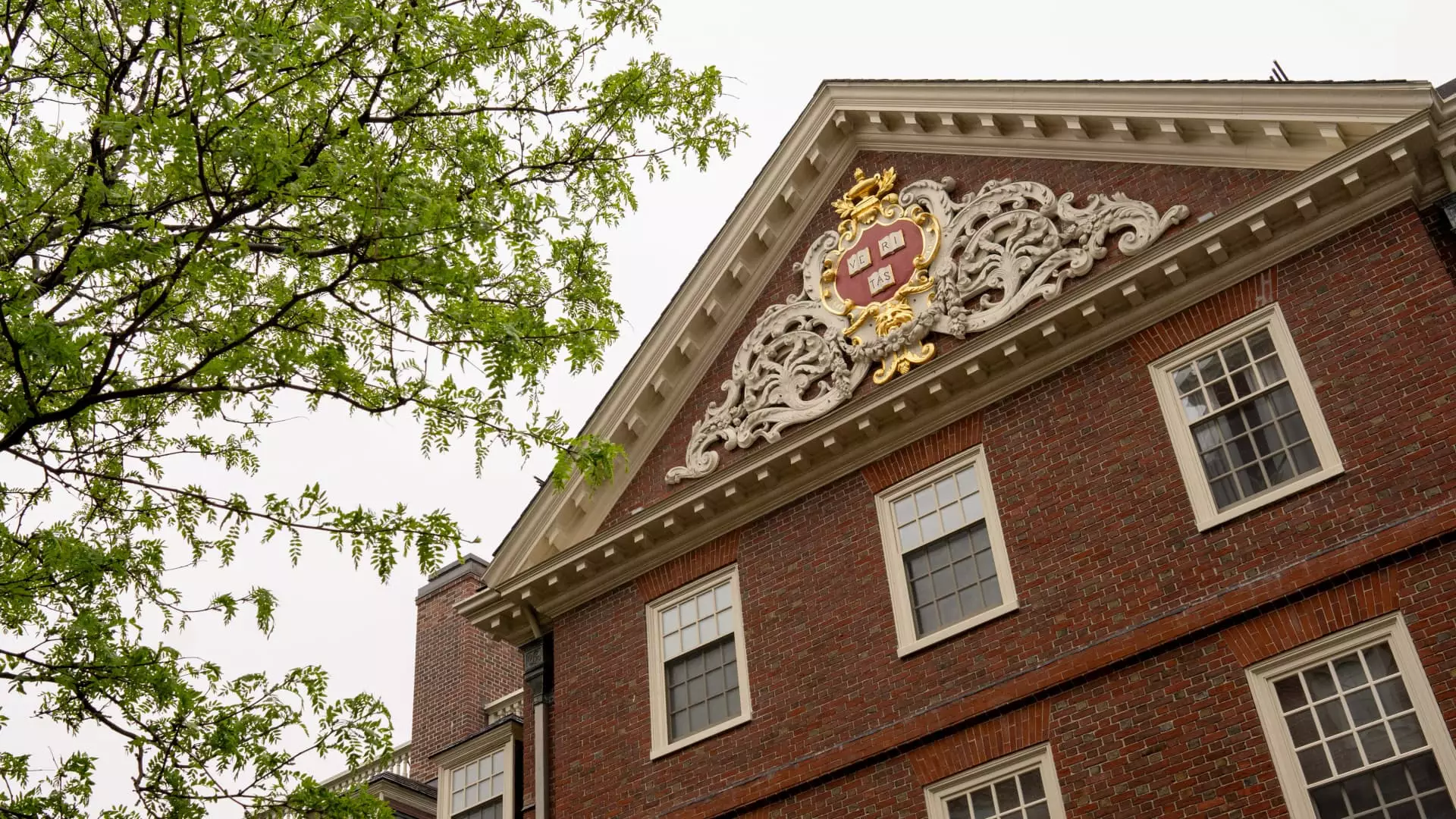The escalating conflict between President Donald Trump and Harvard University has become a troubling reflection of a broader war on intellectual freedom in America. In a striking move, Trump has proposed redirecting $3 billion in federal grants meant for scientific and engineering research at Harvard to trade schools in a bid to realign educational priorities. His actions stem from a grievance against what he disparagingly terms the “Radical Left idiots” permeating elite institutions, and a reactionary effort to control educational landscapes. This clash encapsulates a disturbing trend: the politicization of education and the alarming erosion of institutional independence.
The unfolding situation is both emblematic of a power struggle and a manifestation of deep-seated societal divides. Trump’s systematic freezing of these federal grants stems from a wooden belief that academic institutions, particularly those gleaming under Ivy League prestige, must align with his narrative or face punitive action. Harvard University’s legal battle highlights an urgent question: how far will the executive branch go in wielding federal funding as a weapon against institutions that challenge its authority? The alarming implications raise eyebrows not merely for educational stakeholders but for the citizenry at large.
Redefining Educational Priorities
The proposed reprioritization of educational funding raises serious questions about who benefits from such a dramatic shift. On the surface, Trump seems to position this realignment as a means of enhancing vocational training opportunities at trade schools—a noble endeavor, indeed. However, this well-meaning facade crumbles under scrutiny, revealing a strategy designed to undermine centers of academic excellence that do not adhere to his partisan ideals. The notion that the future of America’s workforce hinges solely on vocational training is dangerously simplistic.
Science and engineering research funded by these grants fuel innovations that can change the course of industries and, ultimately, society as a whole. The notion that such critical work should be deprecated in favor of vocational studies is indicative of a myopic view of education’s role in addressing the challenges of the 21st century. The free exchange of ideas—a fundamental principle upon which academic institutions like Harvard were built—could suffer irrevocably if funding is wielded coercively.
The Legal Battle: An Uphill Struggle for Academic Integrity
Harvard has not sat idly by. The university’s legal counter-offensive against Trump’s machinations underscores the severity of the issue at hand. It’s not just an isolated case of funds being suspended; it’s about academic independence and the profound right to free expression. In a constitutional democracy, institutions must be shielded from retribution when they challenge the status quo or promote dissenting viewpoints, especially in the face of a politically charged environment. Harvard’s argument—that these cuts amount to an unconstitutional attack on free speech rights—reveals the high stakes involved in this battle.
With the White House remaining tight-lipped about the specific funds Trump wishes to reallocate, one can only speculate about his true intentions. Is it genuinely about improving vocational education, or is it simply a strategic attempt to silence dissent? This question festers in the minds of concerned citizens and educators alike. Moreover, Trump’s push to disrupt international student enrollment at Harvard strikes a particularly sour note, demonstrating an aversion to the multicultural exchange of ideas that enriches any educational environment.
The Broader Implications of Trump’s Agenda
This conflict is part of a larger framework in which Trump seeks to leverage his position in office to conform institutions—be it schools, media, or even the judiciary—to align with his agenda. The accusations levied against Harvard of perpetuating left-wing bias point to a distressing trend where dissent is not welcomed but punished. This scenario sends a chilling message: conform to a singular narrative or face repercussions.
The implications extend beyond the hallowed halls of Harvard to resonate with every educational institution nationwide. As high-profile cases emerge, the spectrum of academic freedom becomes increasingly narrow, placing all institutions—particularly those inclined to challenge governmental authority—at risk of operating under a cloud of fear and self-censorship.
The stakes have never been higher for the future of education in America. Will academic institutions maintain their integrity, or will they disintegrate into mere echoes of a dogma being aggressively enforced from the top down? As students and educators rally to defend the principles that have long underpinned their institutions, their struggle becomes a mirror reflecting the values we hold dear as a society—values that must prevail against the tide of political retribution.



Leave a Reply